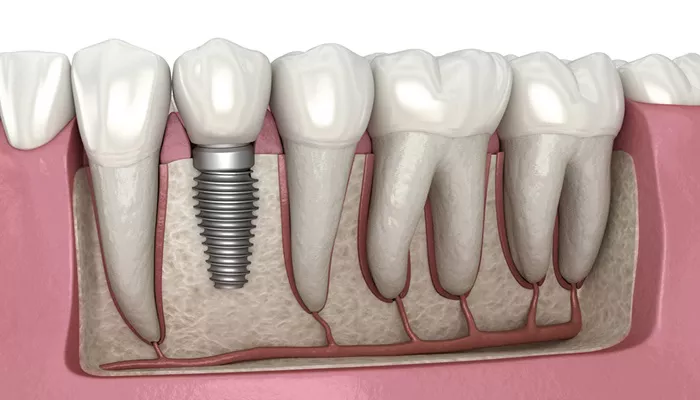As a dental professional, I often receive inquiries about the cost of dental implants in Sweden. Dental implants are a popular and effective solution for replacing missing teeth, but the cost can be a significant factor for many patients. In this article, we will explore the various aspects that influence the cost of dental implants in Sweden and provide a comprehensive guide to help you make an informed decision.
What Is Dental Implants?
Dental implants are artificial tooth roots made of titanium or zirconium oxide that are surgically placed into the jawbone.
Once integrated with the surrounding bone, the implant serves as a stable foundation for a dental restoration, such as a crown, bridge, or denture. Implants are a popular choice for replacing missing teeth because they provide a natural-looking and long-lasting solution.
Factors Affecting The Cost of Dental Implants in Sweden
The cost of dental implants in Sweden can vary depending on several factors:
Number of implants: The more implants needed, the higher the overall cost.
Type of implant: Different implant systems and materials can have varying prices.
Additional procedures: Procedures such as bone grafting, sinus lifts, or extractions can increase the cost.
Location of the implant: Implants placed in the back of the mouth may require more complex procedures and thus cost more.
Dental clinic: Prices can vary between different dental clinics based on their location, expertise, and overhead costs.
SEE ALSO: How Much Is A Dental Implant at ClearChoice?
Average Cost of Dental Implants in Sweden
According to the information gathered from various dental clinics in Sweden, the average cost of a single dental implant ranges from SEK 15,000 to SEK 25,000 before deductions from the Social Insurance Fund. This cost includes the implant itself, the abutment (the connector between the implant and the crown), and the dental crown.
It’s important to note that the total cost can vary depending on the individual case and the factors mentioned above. For example, if multiple implants are placed at the same time, the cost per implant may be lower.
High-Cost Protection And Dental Care Allowance
In Sweden, dental care is subsidized by the government through the Social Insurance Agency (Försäkringskassan). The high-cost protection scheme covers a portion of the cost for dental treatments that exceed a certain threshold.
For dental implants, the high-cost protection kicks in when the total cost exceeds SEK 3,000. The government covers 50% of the costs that exceed SEK 3,000, and 85% of the costs that exceed SEK 15,000.
Additionally, the general dental care allowance (tandvårdsbidraget) provides a certain amount of money per year to help cover the cost of dental care. The allowance varies depending on the patient’s age and dental health status.
Financing Options for Dental Implants
To make dental implants more accessible, some dental clinics offer financing options. These may include payment plans, where the cost is divided into manageable monthly installments, or partnerships with financing companies that provide loans specifically for dental treatments.
It’s important to discuss financing options with your dentist and carefully review the terms and conditions before making a decision.
Choosing The Right Dental Clinic
When selecting a dental clinic for your implant treatment, it’s crucial to consider factors such as the dentist’s experience, the clinic’s reputation, and the quality of materials used. While cost is an important factor, it should not be the only consideration.
Look for a clinic that uses original implant components and offers a warranty on their work. A reputable clinic will also provide a detailed treatment plan and cost estimate before starting the procedure.
Maintaining Your Dental Implants
To ensure the longevity of your dental implants, it’s essential to maintain good oral hygiene and attend regular check-ups with your dentist. This includes brushing and flossing your teeth regularly, using an antimicrobial mouthwash, and visiting your dentist for professional cleanings and examinations.
Alternatives to Dental Implants
While dental implants are considered the gold standard for replacing missing teeth, they may not be suitable for everyone.
Alternatives to dental implants include fixed bridges and removable dentures.
Fixed bridges involve attaching a replacement tooth to the adjacent teeth, while dentures are removable appliances that replace multiple missing teeth. These alternatives may be more affordable than dental implants, but they may not provide the same level of stability and longevity.
Conclusion
Dental implants are a reliable and long-lasting solution for replacing missing teeth, but the cost can be a significant factor for many patients in Sweden. By understanding the various factors that influence the cost and exploring financing options, patients can make an informed decision about their dental care.
Remember, the cheapest option may not always be the best, and it’s essential to prioritize the quality of care and the dentist’s expertise when choosing a clinic for your implant treatment.

